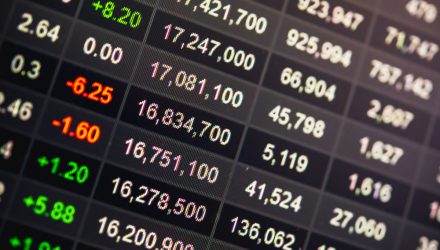Amid a flurry of new fund launches in the environmental, social, and governance (ESG) space and increasing regulatory scrutiny on ESG labeling and scoring, advisors and clients are clamoring for clean definitions of sustainable funds.
Moreover, they want sustainable funds that really are sustainable and aren’t complex. The Goldman Sachs JUST U.S. Large Cap Equity ETF (JUST) checks those boxes and is highly appropriate at a time when many investors who are considering ESG exposure have questions.
“But there’s plenty of room for misunderstanding, because sustainable investing, often called environmental, social, and governance investing, actually comprises a wide range of approaches,” writes Morningstar analyst Leslie Norton.
What makes JUST appealing at a time of increasing ESG fund adoption is that it’s the premier ETF for accessing the concept of stakeholder capitalism. Stakeholder capitalism emphasizes pleasing more than just a company’s high-ranking executives and shareholders. Through that broad approach, stakeholder capitalism provides exposure to all three of the ESG pillars rather than isolating one at the expense of the other two.
Adding to the allure of stakeholder capitalism and JUST is that this methodology can help limit ESG risk, which is a trait that’s often overlooked in favor how much positive ESG exposure a company has.
“In some cases, ESG metrics are used primarily to help fund managers understand how much ESG risk a company face,” adds Norton. “Many actively managed funds, whether they are sustainability focused or traditional, also use ESG ratings to limit risk.”
For its part, JUST doesn’t need to turn to active management to bolster its ESG credentials. The ETF follows the JUST U.S. Large Cap Diversified Index, a benchmark that goes above and beyond the prosaic ESG scoring employed by many of the legacy funds in this category.
Translation: JUST’s data-rich approach helps investors access a basket full of credible ESG opportunities. Moreover, the fund taps into what constitutes an ESG opportunity.
“This means using ESG information to identify companies that are sustainability leaders, by industry or sector, or to pick improving companies, or those that are using sustainability to create or enhance a competitive advantage,” concludes Norton.
For more news, information, and strategy, visit the Future ETFs Channel.
The opinions and forecasts expressed herein are solely those of Tom Lydon, and may not actually come to pass. Information on this site should not be used or construed as an offer to sell, a solicitation of an offer to buy, or a recommendation for any product.

